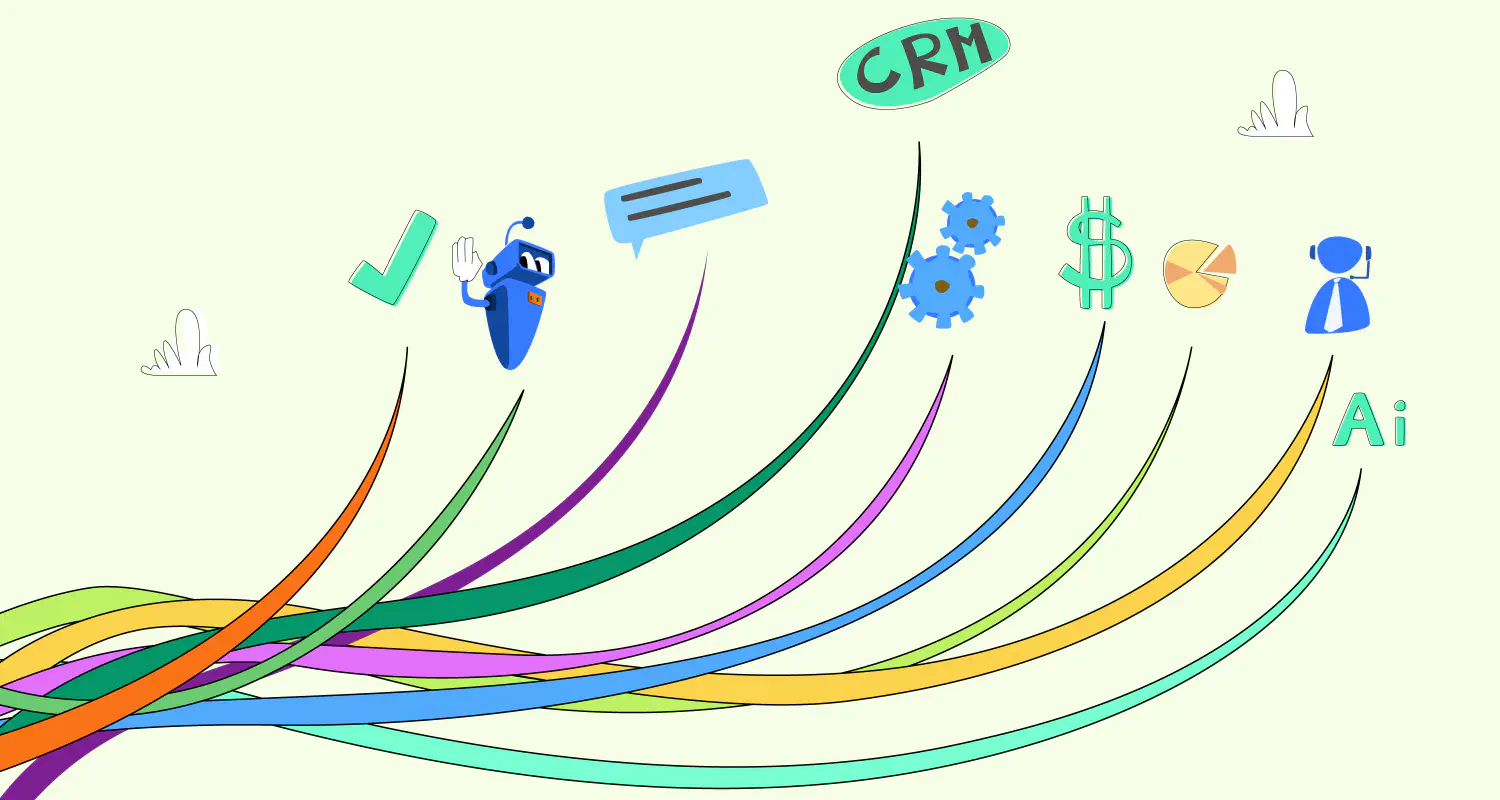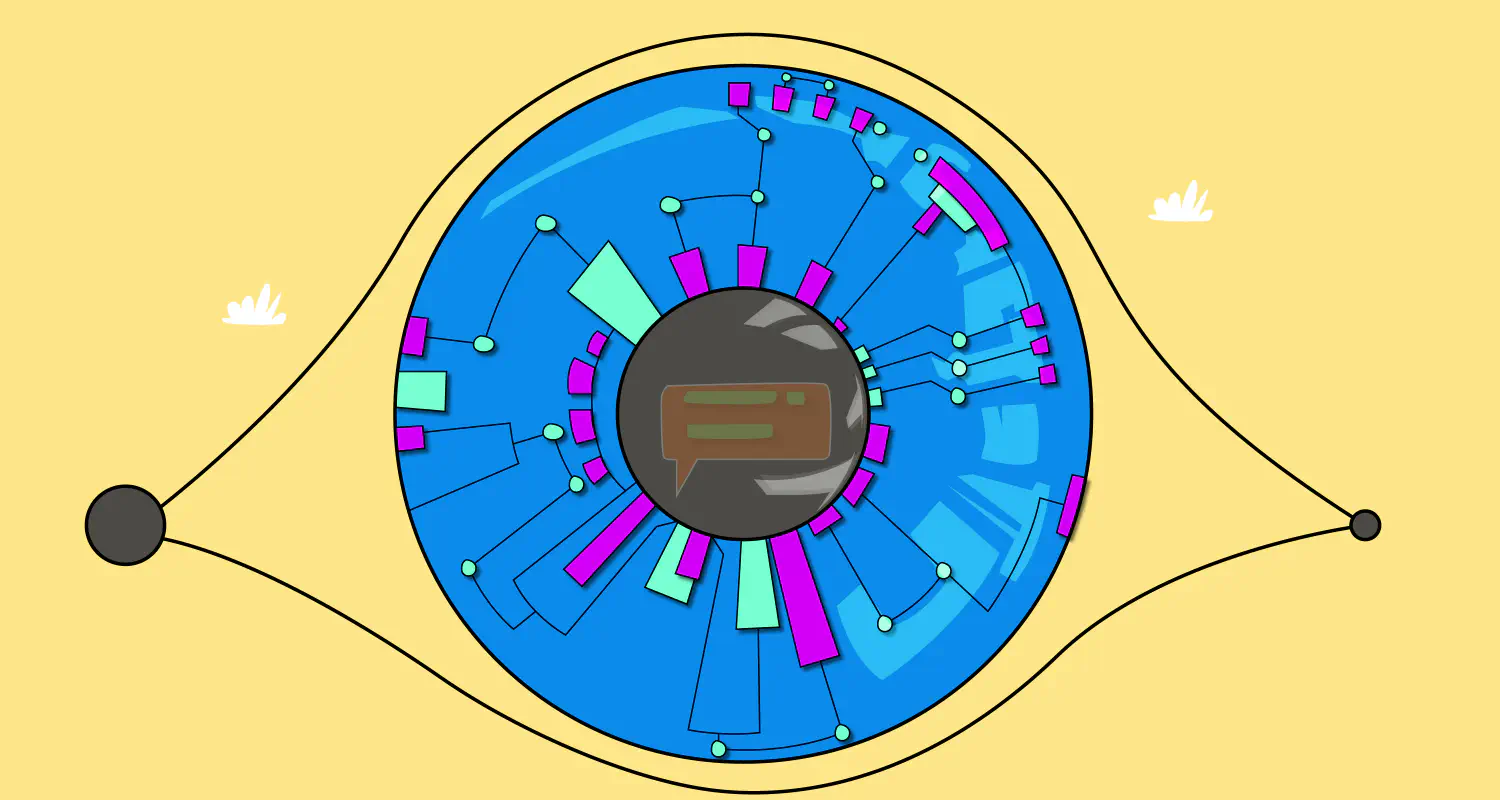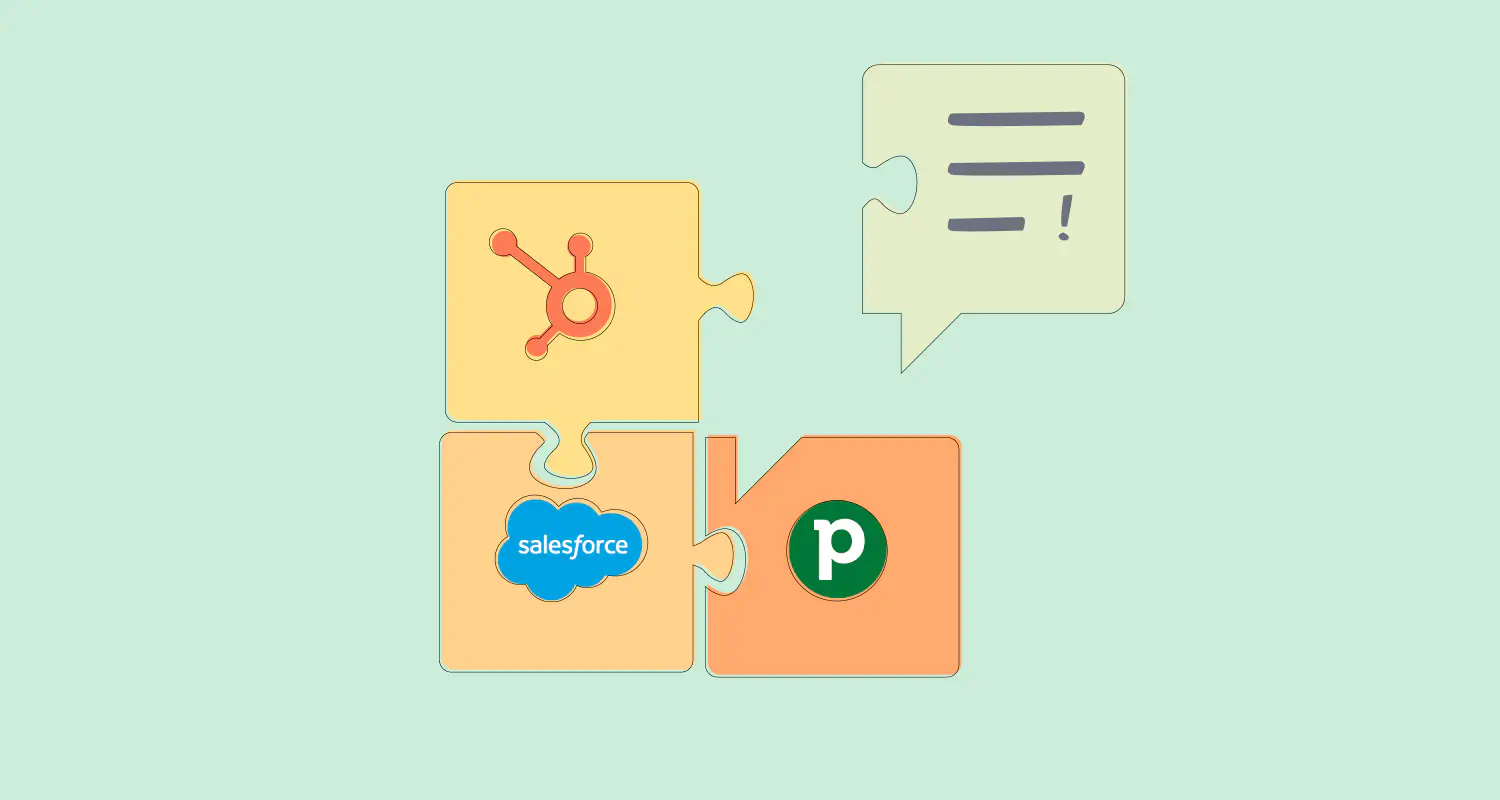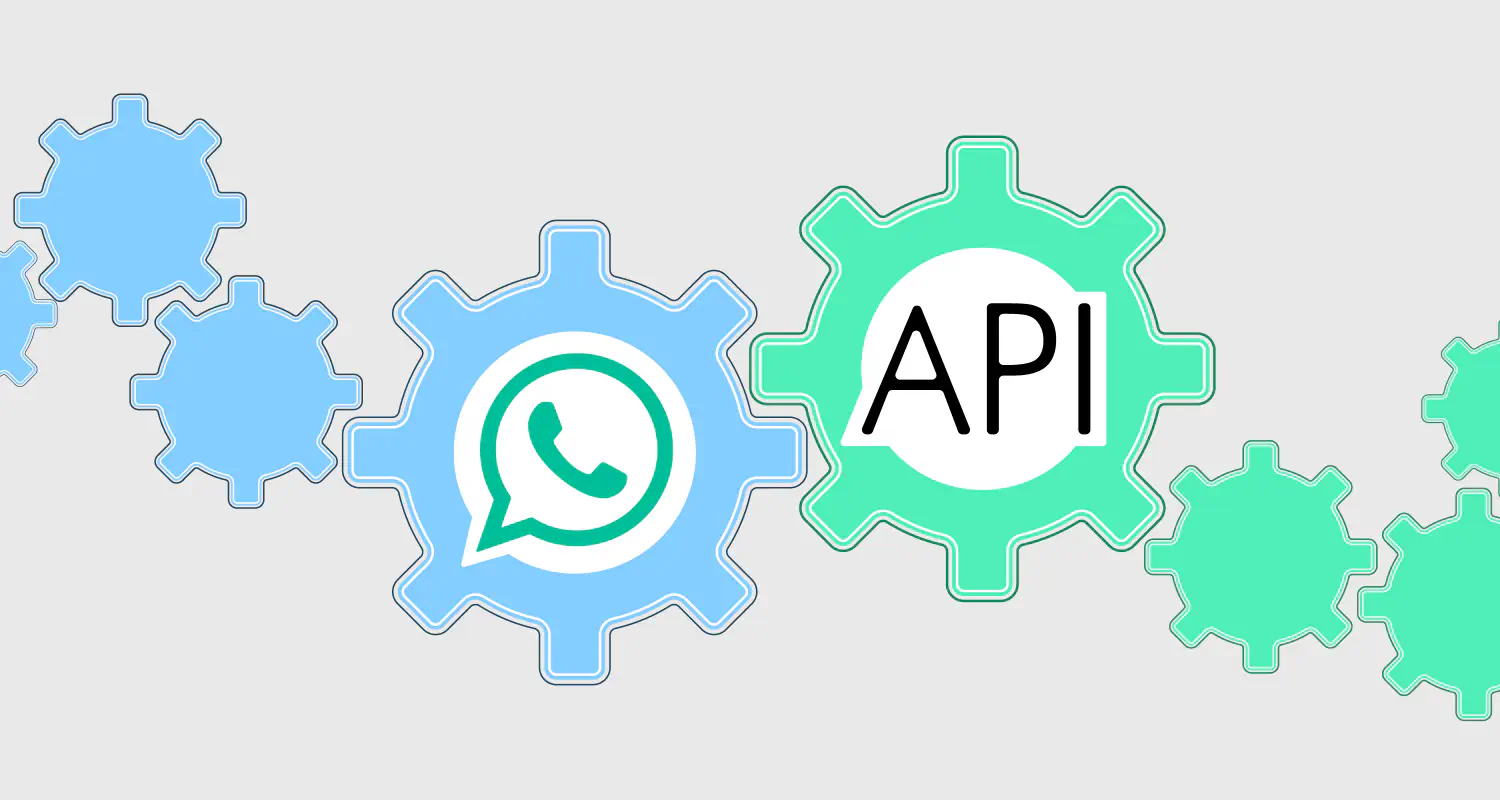7 B2B Sales Trends to Watch Out for in 2025 and Beyond

A lot has changed in sales.
But the biggest shift? It’s how buyers want to interact with you.
They don’t want phone calls. They don’t want long email threads. They want fast, focused conversations in the apps they already use to talk to friends, colleagues, and vendors.
For most, that means messaging.
And that shift has pushed sales teams to rethink how they sell.
AI, automation, and data are shaping the new world of sales, but only if you’re using them where your buyers are. That’s where messaging-first sales teams have the edge.
Let’s look at the trends changing modern sales and how messaging is at the center of them all.
1. Your new teammate is AI
AI is a frontline teammate helping reps handle real conversations, qualify leads, and take action in real time. But not all AI is created equal. Most tools still sit inside CRMs, waiting for someone to feed them data or trigger a rule. That’s not how sales work anymore, especially in fast-paced messaging channels like WhatsApp.
Messaging-first teams are already using AI assistants that jump into real conversations. They ask smart questions, tag leads, hand off to reps when it’s time, and never forget to follow up. It’s not a script. It’s support that moves with the deal.
This isn’t the future; it’s happening now!
2. Smarter automation, better conversations
We’ve all seen the kind of automation that clogs inboxes and adds noise. That’s not the kind we’re talking about.
Today’s automation is smarter. It’s not just moving tasks from one column to another, but it’s helping sales teams qualify, nurture, and book without lifting a finger.
You can’t afford to wait hours to reply, or follow up manually when a lead goes quiet. Messaging automation now runs in the background, following up with no-shows, re-engaging cold leads, and sending helpful nudges at the right time. Not spam. Not fluff. Just the next best step, right on time.
And the best part? It works while your team sleeps.
3. Lead generation is no longer a guessing game
The old playbook was simple: cast a wide net, then qualify later.
But messaging doesn’t leave room for wasted effort. You don’t want reps chatting with leads who were never a fit. You want high-intent conversations from the start.
That’s where predictive lead gen is making a real difference.
With better targeting, scoring, and intent signals, teams are getting clearer about who to reach out to and when. The result? Fewer cold starts. More qualified conversations.
And when this data is plugged into WhatsApp flows or chat-based outreach, your lead gen doesn’t just get smarter, it gets faster.
4. Personalization or bust
People don’t respond to templates. They respond to relevance. It’s not enough to use a first name or mention a company. Buyers want to feel like you understand their needs before they ever talk to a rep.
In messaging, that bar is even higher. Conversations are fast and personal by default. If your outreach feels scripted or out of touch, it gets ignored.
The best sales teams move with clarity because they’re guided by data recorded in their CRM. Every reply, every delay, every question is a signal. And when you know how to read those signals, you stop guessing and start closing faster.
Now you can move with clarity because real-time data recorded in your CRM guides you. Every reply, delay, and question is a signal, and reading those signals helps you stop guessing and start responding in a way that feels personal and relevant.
5. Digital-first is the new default
B2B buyers used to expect a call, a meeting, maybe even a lunch. Now, they expect a message. Deals, even large ones, are done entirely over digital channels. No handshakes, no travel, just fast, focused conversations in the tools buyers already use.
For most of the world, that means WhatsApp.
Buyers don’t care if it’s formal. They care if it’s helpful. That’s why messaging-first teams are closing deals faster, because they’re making it easier to move forward.
6. Hybrid wins the long game
Sales reps aren’t being replaced. They’re being unburdened.
AI sales assistants can qualify leads, follow up instantly, and handle the repetitive tasks that used to fill up a rep’s day. And they’re getting better at it, fast. Gartner predicted that 75% of B2B sales orgs would use AI sales assistants by 2025. That prediction isn’t just holding up — it’s accelerating.
But this doesn’t mean SDRs are going extinct. Far from it.
The best teams aren’t choosing between humans and AI. They’re combining them. Reps focus on the conversations that move the deal. AI handles everything else.
And it’s working.
7. Retention is your growth engine
Getting new customers is expensive. Keeping them shouldn’t be. Customer acquisition costs (CAC) keep rising, especially in competitive markets. Meanwhile, customer lifetime value (LTV) is what makes a business sustainable. The math is simple: the longer someone stays, the more valuable they become.
That’s why smart sales teams aren’t just chasing new logos, they’re building relationships that last.
Messaging helps with that. It keeps conversations going after the deal is closed. It makes follow-ups feel natural. It makes upsells and renewals part of the relationship, not a campaign.
Retention isn’t a separate strategy anymore. It’s baked into how you talk to customers from day one.
What we’re building at Rasayel to help you stay ahead
Every trend we’ve talked about is already reshaping how sales teams work. At Rasayel, we’re not just keeping up with these changes. We’re building for them.
The Rasayel Team Inbox helps sales reps, managers, and automation work in sync. Everyone sees the full conversation history. Reps can jump in without stepping on each other. Managers get visibility without micromanaging. It’s WhatsApp, but structured for sales.
We connect with tools like HubSpot, Salesforce, and Pipedrive so your reps don’t have to switch tabs just to log a note or update a deal stage. Our CRM integrations are designed to bring the context into WhatsApp, not pull your team out of it.
Reports in Rasayel do much more than showing you useless numbers like message counts. They tell you when leads are engaging, how fast your team replies, and which reps are getting stuck. Sessions are tracked in a way that reflects reality.
We recently released Cleo, an AI teammate built to help your team sell smarter and faster. Cleo is already trained to qualify leads over WhatsApp. It talks to inbound leads in real time, asks smart questions, and politely disqualifies the ones that don’t fit, with context for your team. When a lead is qualified, Cleo brings in your reps at just the right moment, with everything they need to take over.
Cleo is already saving time, cutting down manual work, and keeping sales teams focused on the conversations that matter. And it’s just getting started.
What’s coming next
Soon, you’ll be able to message Cleo directly. Need to check in on a deal? Want to leave a note? Want Cleo to follow up for you? Just ask. Cleo will be right there, like any teammate would be.
And Cleo won’t stop at qualification. It’ll learn to book meetings, support follow-ups, manage pipeline stages…
Cleo will also integrate with more than just your CRM. If you use custom tools or a complex tech stack, Cleo will fit in.
One last thing before you go
Sales is fast, but the goal stays the same: connect with the right people, at the right time, in the right way. What’s different now is how you do that, and who’s doing it with you.
The teams that win won’t be the ones chasing every new trend. They’ll be the ones who know what matters, stay close to their buyers, and build systems that scale with them.
Messaging isn’t just another channel. It’s where real sales happen.

Miodrag is a seasoned WhatsApp marketing expert with over 15 years of experience in B2B sales and communication. Specializing in the use of WhatsApp Business API, he helps businesses use WhatsApp’s marketing features to grow their sales and improve customer engagement. As one of the early adopters of WhatsApp Business, Miodrag has a deep understanding of its tools and strategies, making him a trusted authority in the field. His insights have helped many businesses with their communication strategies to achieve measurable results.





